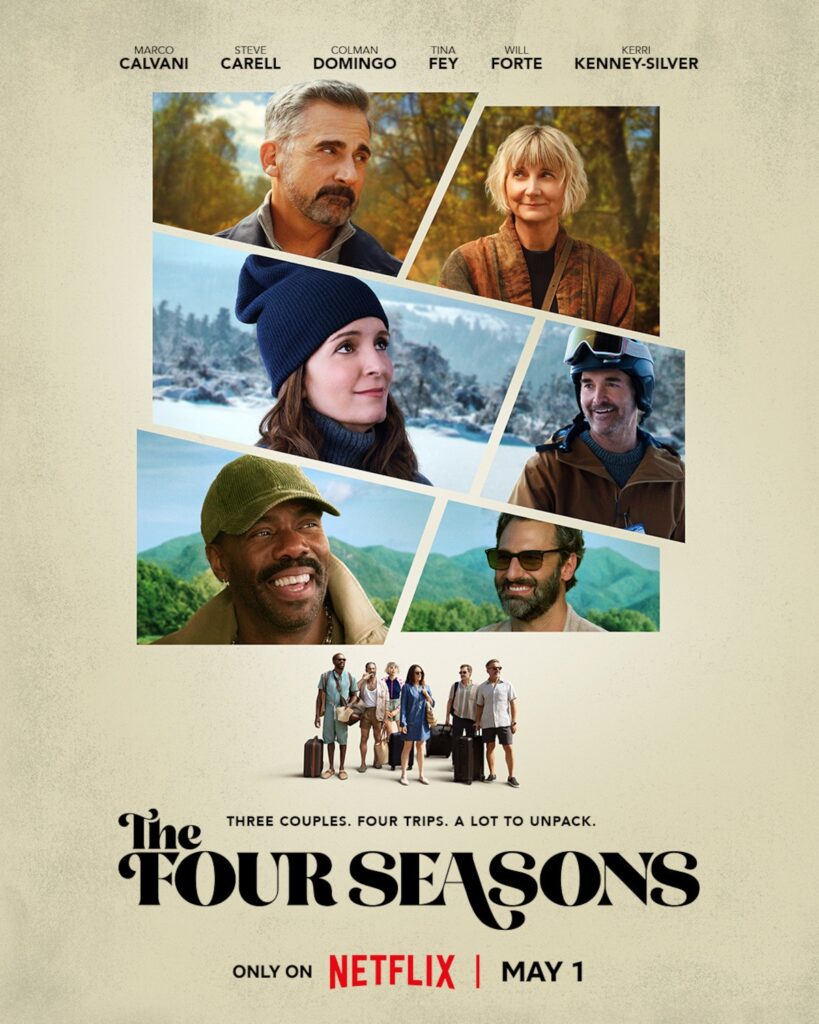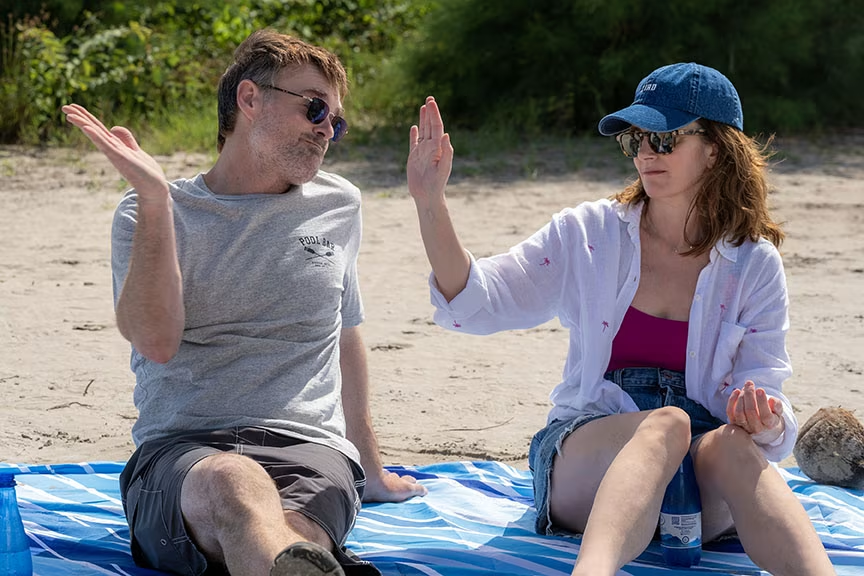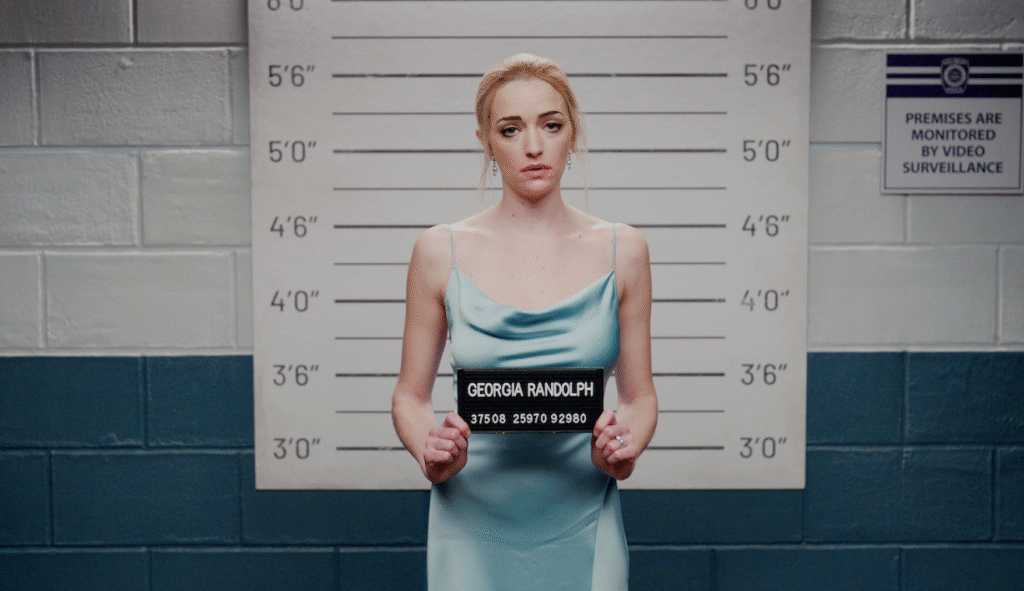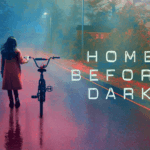It’s a rare pleasure when a television show manages to balance rich comedy with profound emotional insight, and Tina Fey’s The Four Seasons is exactly that kind of gem. A sharp, funny, and moving midlife dramedy about friendship, marriage, aging, and change, this eight-episode Netflix series is an updated reimagining of the 1981 Alan Alda film of the same name. But with Fey at the helm – joined by longtime collaborators Tracey Wigfield and Lang Fisher – it becomes something more than a remake. It’s a poignant reflection on the lives we build and the people we tether ourselves to, told with the kind of layered comedy that only comes from real understanding.
A Grown-Up Story for Grown-Ups
Set over the course of a year, The Four Seasons follows three affluent, long-time married couples in their 50s who have remained close friends since college. They spend a weekend together every season – four trips a year – an enviable tradition that forms the narrative spine of the series. This structure gives the show not only its title but also its emotional rhythm, allowing us to watch the group evolve across time and temperature, from the thawing surprises of spring to the introspective silences of winter.
At the center is Kate, played by Fey herself, the anxious, meticulous organizer of these getaways. She is married to Jack (Will Forte), a kind-hearted softie who serves as a gentle buffer to her tightly wound personality. Their dynamic is full of the kinds of loving, weary exchanges that anyone in a decades-long relationship will recognize. “Complaining is their version of sex,” one friend jokes, and the line hits as both hilarious and true.
The group is rounded out by Nick (Steve Carell), who drops a seismic bombshell in the first episode: he’s planning to leave his wife of 25 years, Anne (Kerri Kenney-Silver). Their marriage, once seen as the most stable, is now unraveling, and the fallout sends shockwaves through the rest of the group. Completing the ensemble are Claude (Marco Calvani), an exuberant Italian whose character deepens throughout the show, and his partner Danny (Colman Domingo), whose dry wit and emotional gravitas make him a standout. Together, these six characters carry the show with grace, humor, and depth.

Comedy That Knows Its Age
While The Four Seasons is frequently laugh-out-loud funny, it’s not the rapid-fire, gag-heavy comedy of Fey’s 30 Rock days. Instead, it’s humor rooted in character, experience, and the tiny indignities of midlife. This is a show that understands what it’s like to spend decades with the same people, romantic or platonic. It knows that sometimes the greatest expression of love is ordering the right sandwich without asking. That sex might be less frequent, but understanding runs deeper. That cleaning the air fryer isn’t just a chore – it’s a metaphor for the unglamorous labor that sustains any kind of relationship.
This maturity doesn’t mean the show is dry or slow. The scripts crackle with intelligence and perfectly delivered punchlines. In the second episode, Anne – still unaware of Nick’s intention to leave her – arranges a surprise vow renewal. The friends, now caught in an ethical and emotional bind, argue over whether to tell her. “God,” says Danny to Kate, “your face is so loud sometimes.” It’s a line that only works because of the history between these characters, and Fey delivers the expression in question with perfect, wordless precision.
The Heartbreaking Punch of Real Life
What makes The Four Seasons so affecting is its ability to toggle effortlessly between farce and genuine heartbreak. Nick’s departure isn’t a comedic plot point; it’s a rupture that the show takes seriously, exploring how betrayal echoes through a circle of friends who’ve built decades of shared history.
As Nick introduces his new 32-year-old girlfriend Ginny (played with chirpy bravado by Erika Henningsen) into the mix, things only get messier. Her presence is alternately hilarious and horrifying. The group’s summer trip, for example, sees Ginny ditching five-star comfort for an “eco-yurt resort,” subjecting everyone to awkwardly audible sex sessions and compost toilets. “In a May-December romance,” Danny quips, “the Decembers are supposed to haul the Mays up to their living standards.” It’s a biting line that captures the group’s increasing discomfort.
But it’s not all about snide remarks and social awkwardness. One of the most powerful episodes involves the group visiting Nick’s daughter’s college play. The title? Once Upon a Time My Dad Destroyed My Family and Started Dating a Stupid Bitch. The line gets a laugh, but what lingers is the emotional cost. The show never forgets that its characters’ choices have consequences.




Performance Highlights: Career-Best Work from Familiar Faces
Steve Carell’s portrayal of Nick is revelatory. Known for toggling between comedic and dramatic roles, Carell lands squarely in the middle here, playing a man torn between guilt and selfishness. His performance reminds viewers of just how skilled he is at capturing ambiguity – he’s neither villain nor victim, just painfully human.
Colman Domingo, meanwhile, continues his well-deserved ascent with a standout turn as Danny. He brings elegance, empathy, and a biting comic edge to a role that could have easily become archetypal. As the character who faces his own mortality over the course of the year, Domingo adds layers of poignancy that anchor the show’s heavier themes.
Even the less flashy roles shine. Will Forte’s Jack might be the group’s quiet center, but his gentle decency gives the show some of its most heartfelt moments. Marco Calvani’s Claude grows beyond his initial “excitable Italian” stereotype to become one of the more nuanced characters in the ensemble. And Kerri Kenney-Silver is heartbreaking as Anne, navigating humiliation, anger, and self-discovery with grace.
Writing That Cuts Deep – And True
The genius of The Four Seasons lies in its writing. Fey, Wigfield, and Fisher don’t just aim for zingers – they aim for truths. The show understands the long rhythms of love and friendship. It gets how small slights can build into major grievances, how comfort and routine can be both safety and prison. It understands that middle age isn’t about stagnation, but about navigating the complexity of having lived long enough to see both the best and worst of people – including ourselves.
And crucially, the show doesn’t slide into bitter nostalgia or generational whining. It doesn’t sneer at younger people or pine for a “better” past. When Nick admits he’s confused by Ginny’s fluid identity, his question – “What does fluidity mean?” – is less a punchline than a plea for understanding. The show makes room for compassion, even when its characters are at their most frustrating.

A Show That Knows What It’s Doing – And Who It’s For
The Four Seasons is unapologetically targeted at an adult audience. It’s not trying to be cool or cutting-edge; it’s trying to be honest. And in doing so, it becomes one of the most refreshing and satisfying comedies in years.
This isn’t a show filled with twists and shocks. Unlike The White Lotus, to which it’s been compared, no one dies. But death, in the form of looming illness and existential fear, still haunts the edges. What Fey and her team have done is create a story that recognizes that sometimes the biggest dramas are the quietest ones – a look, a word unspoken, a friendship fraying under the strain of too much history.
In many ways, The Four Seasons feels like a culmination of Tina Fey’s career to date. After the wild, absurd brilliance of 30 Rock and the high-concept whimsy of Unbreakable Kimmy Schmidt, this is her most grounded work yet. It shows a writer and performer in full command of her powers, willing to slow down, dig deeper, and trust that life itself – in all its awkward, bittersweet glory – is enough.
A Midlife Triumph from Fey
Warm, wise, and laugh-out-loud funny, The Four Seasons is a triumph of mature storytelling. It’s a love letter to enduring friendships, flawed marriages, and the sometimes maddening process of growing older. But above all, it’s a reminder that real comedy comes not just from clever dialogue, but from truth – the kind that sees us as we are, loves us anyway, and finds a way to make us laugh.
For anyone in midlife – or anyone with the empathy to imagine what it’s like – this is unmissable television. And for Tina Fey fans, it’s a long-awaited return to form that more than delivers.










